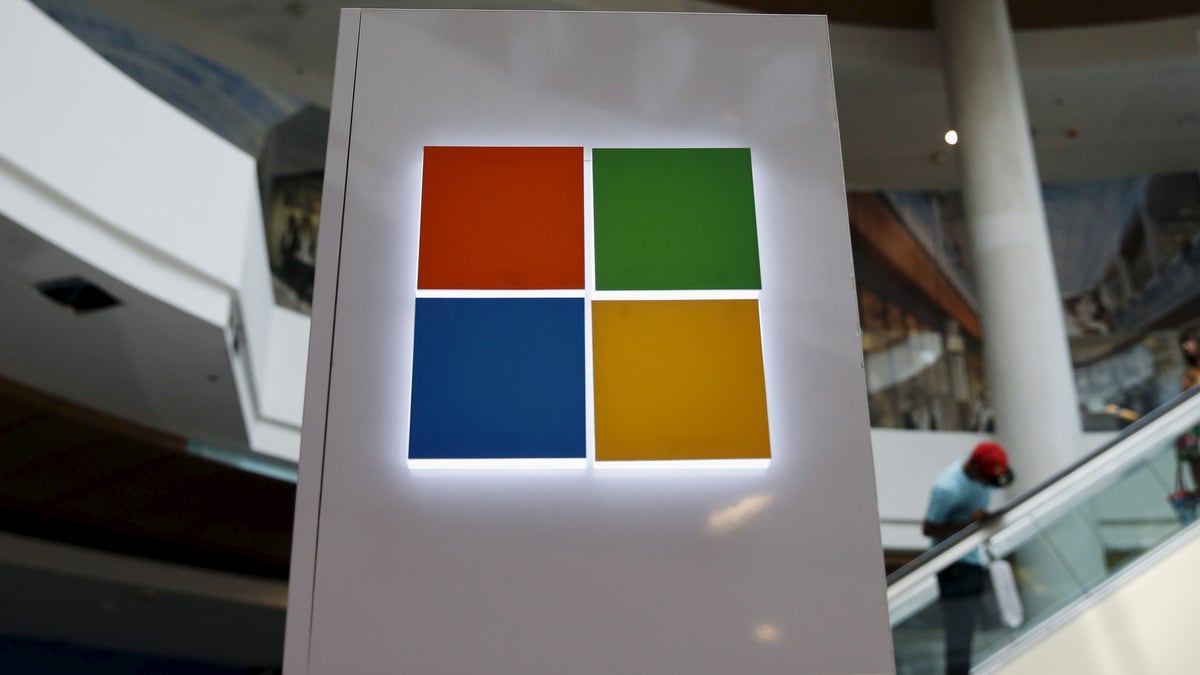
A Microsoft logo is seen at a pop-up site for the new Windows 10 operating system at Roosevelt Field in Garden City, New York July 29, 2015. (REUTERS/Shannon Stapleton)
As expected, Microsoft on Wednesday unveiled a Slack-esque business collaboration tool for Office 365, dubbed Teams.
Described by Microsoft CEO Satya Nadella as a "chat-based workspace," the tool lets you message colleagues in threaded group chats or one on one. It's integrated with Word, Excel, PowerPoint, and Skype, plus you can spice up the conversations with GIFs and custom memes.
Microsoft is specifically touting the security features of Teams. Data is encrypted at rest and in transit, the platform is compliant with standards like HIPAA and EUMC, and it offers multi-factor authentication. It can also be centrally managed as part of Office 365.
Teams is available now in preview in 181 countries and in 18 languages. Microsoft plans to include Teams in all Office 365 enterprise and small business offerings. It's slated to officially launch in the first quarter of 2017. Microsoft also has Teams apps in the works for Windows Phone, iOS, and Android.
At an event in New York City on Wednesday morning, Nadella called Teams a "digital forum" where colleagues can "have casual conversations, work on content, [and] create work plans," all within a unified experience. Just like Outlook brings your emails, contacts, and calendar into one place, Teams, he said, brings together chat, meetings, notes, Office, Planner, Power BI, and a "host of other extensions and applications to help teams get work done."
"This is an experience that truly empowers that art form of how teams work and drive success," Nadella said.
PCMag was at Microsoft's event; stay tuned with for our first look at Teams.
Meanwhile, Slack on Wednesday threw some major shade at Microsoft about its new tool. Before Microsoft even went public with its news, Slack this morning took out a full page ad in The New York Times with an open letter and "some friendly advice" for Redmond.
That feeling when you think "we should buy a full page in the Times and publish an open letter," and then you do. 💫 pic.twitter.com/BQiEawRA6d
— Stewart Butterfield (@stewart) November 2, 2016
"We're genuinely excited to have some competition," the letter starts. Slack then goes on to say that Microsoft can't expect to just duplicate Slack's features and hope to have the same success.
"You're not going to create something people really love by making a big list of Slack's features and simply checking those boxes," Slack wrote. "We know that playing nice with others isn't exactly your MO, but if you can't offer people an open platform that brings everything together into one place and makes their lives dramatically simpler, it's just not going to work."
This article originally appeared on PCMag.com.








































